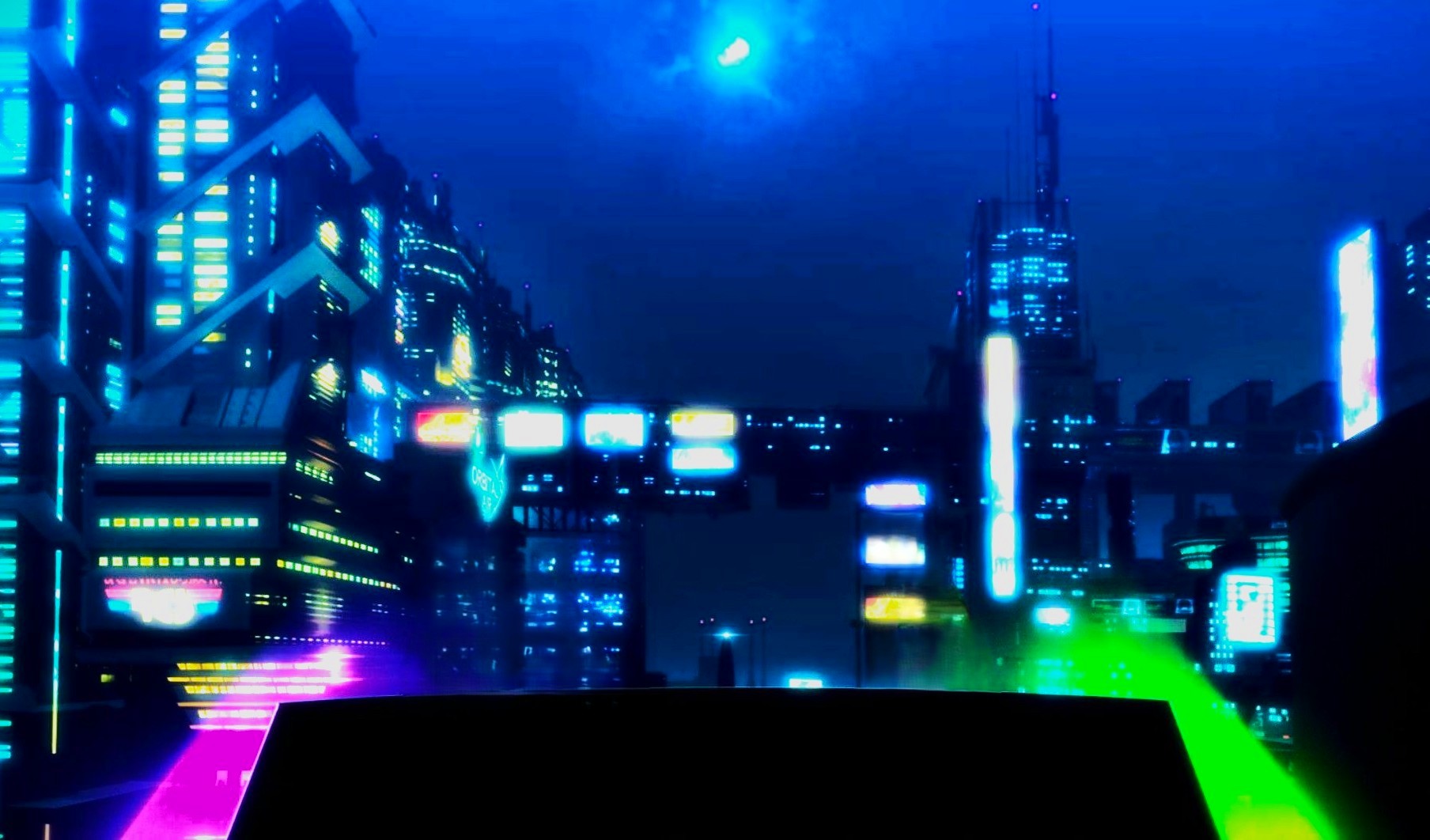By XPTechWorld
Table of Contents
Introduction — The Neon Mirage
Night City shines brighter than any metropolis of the future, yet its glow hides something rotten. Beneath the neon lights and chrome implants lies a society suffocating under its own progress. Cyberpunk 2077 isn’t just a story about mercenaries, corporations, or high-tech rebellion — it’s an autopsy of humanity. In this world, people trade flesh for metal, purpose for profit, and reality for simulation. The result isn’t liberation, but decay.
Cyberpunk’s dystopia is powerful because it feels familiar. Every street corner, every flickering ad, every desperate citizen is a reflection of what happens when technology outpaces morality — when innovation stops serving people and begins consuming them.
Technology as the New God
In Night City, cyberware is more than augmentation — it’s identity. The body becomes a canvas, a commodity, and sometimes, a prison. People don’t upgrade themselves to live better; they upgrade to survive in a world where everyone else already has. Those who can’t afford it are left behind, analog ghosts in a digital era.
Technology, once humanity’s greatest tool, has become its deity. The cyberpunk faith promises transcendence through chrome — faster reflexes, stronger arms, a better you — yet it demands sacrifice: humanity itself. The irony is that in the quest to overcome human limits, people erase the very thing that made them human. Cyberware becomes addiction, and addiction becomes identity.
Anthropology of Night City
Night City’s social order is a study in inequality. At the top are the corpos, cold architects of chaos who manipulate markets and morality alike. Below them are fixers, mercs, and netrunners, operating in the shadow economy where life is cheap and loyalty is rented by the hour. And at the bottom — the countless civilians numbed by braindance loops, living secondhand lives because their real ones are unbearable.
From an anthropological standpoint, Night City represents an advanced but broken society, one that mirrors our own systems of power. The city thrives on exploitation — of resources, of people, of dreams. What defines status here isn’t character or intellect, but how much chrome you can wear before your body gives out. It’s a culture built on performance and consumption, where even emotions are bought, packaged, and sold.
The “punk” in Cyberpunk has always been about rebellion, but in Night City, rebellion itself has been commercialized. Even the act of resistance, the fight against the corpos, becomes another product, another aesthetic.
The Psychology of Degeneration
Psychologically, the inhabitants of Night City live in a constant state of overstimulation. Noise, color, sex, violence — the human brain wasn’t designed for this much input. The result is desensitization. People stop feeling, stop questioning, stop caring. Empathy fades, replaced by apathy and self-preservation.
Addiction plays a major role in this moral collapse. Whether it’s braindance escapism or the euphoric rush of a new implant, pleasure becomes a coping mechanism — a distraction from the emptiness inside. The human soul, unfulfilled by meaning, seeks stimulation instead. It’s the ultimate paradox: the more connected the world becomes, the more disconnected its people are.
Even the player character, V, is trapped in this psychological labyrinth, torn between survival, purpose, and identity. Johnny Silverhand’s ghost isn’t just a digital consciousness; he’s the embodiment of humanity’s arrogance, a man who wanted to change the world but became a virus within it.
Moral Decay and the Illusion of Freedom
Night City is obsessed with freedom — everyone wants to be free from poverty, from control, from mortality itself. Yet every choice leads to another form of enslavement. Mercenaries are free to choose their jobs, but their freedom is defined by who pays. Corporations promise opportunity but strip individuality. Technology offers autonomy but creates dependency.
This illusion of freedom is what makes Cyberpunk’s world so tragic. No one is truly free: not the corpos trapped by ambition, not the fixers bound by the system, not the common citizens pacified by entertainment. Freedom has become a brand, a marketing slogan designed to keep people running after it while never reaching it.
Night City doesn’t need laws to control people; it has desire. And desire, once engineered by those in power, becomes the most effective prison.
A World That Reflects Ours
What makes Cyberpunk 2077 haunting isn’t that it imagines a dark future — it’s that it reflects the present. Our world is already filled with algorithmic manipulation, social media addiction, and moral exhaustion. We too live in a society where the line between authenticity and performance is fading.
Night City is a warning, not a prophecy. It shows us what happens when convenience replaces conscience, when technology stops being a tool and becomes a mirror showing our worst tendencies.
And yet, within all the despair, there’s a strange beauty. The flicker of human will — the refusal to give up, even in a world designed to crush it. That spark is what makes Cyberpunk’s world worth exploring and what makes its tragedy so human.
Conclusion — The Price of Progress
The fall of humanity in Night City isn’t caused by technology itself, but by what we chose to become through it. The city’s lights may never go out, but they shine over empty souls chasing synthetic meaning. Cyberpunk’s dystopia endures because it tells an uncomfortable truth: progress without purpose leads not to enlightenment, but to extinction.
At XPTechWorld, we look at games not just as entertainment, but as mirrors to our world — reflections of the fears, ambitions, and contradictions that define us. Cyberpunk 2077 is more than a game; it’s a question, one you can explore further on the official Cyberpunk 2077 website. And the answer lies not in chrome, but in whether we still recognize ourselves beneath it.
Images used under fair use for commentary and educational purposes. Cyberpunk 2077 © CD Projekt RED. Cyberpunk: Edgerunners © Netflix / Studio Trigger.

